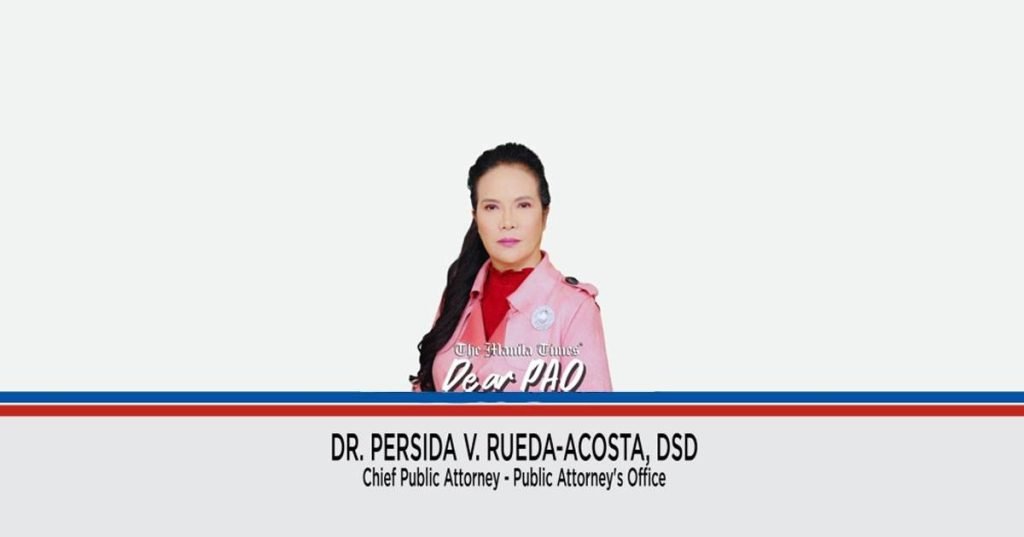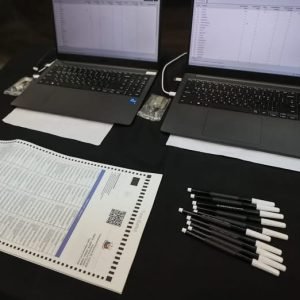
Dear PAO,
I bought a parcel of land from Jose (deceased). Jose was convicted for a certain crime during his lifetime, and, as far as I know, the penalty imposed on him was either reclusion perpetua or life imprisonment. Now, his son called me and claimed that he would recover the land because the sale entered by his father was allegedly void. According to him, any convict cannot sell his/her property during imprisonment as he/she is incompetent to do so. Since his father was serving imprisonment, it follows that the sale of land is not valid. Is it true that Jose cannot sell his property during his prison term?
Randolph
Dear Randolph,
An incarcerated person serving a sentence is not automatically disqualified to dispose of his/her property. There are two penalties mentioned in your letter: reclusion perpetua and life imprisonment. These penalties are distinct and different from each other.
Under Article 41 of the Revised Penal Code of the Philippines, as amended by Republic Act 10951: “The penalties of reclusion perpetua and reclusion temporal shall carry with them that of civil interdiction for life or during the period of the sentence as the case may be, and that of perpetual absolute disqualification which the offender shall suffer even though pardoned as to the principal penalty unless the same shall have been expressly remitted in the pardon.”
Correlative thereto, Article 34 of the same law also states: “Civil interdiction shall deprive the offender during the time of his sentence of the rights of parental authority, or guardianship, either as to the person or property of any ward, of marital authority, of the right to manage his property and of the right to dispose of such property by any act or any conveyance inter vivos.”
On the other hand, life imprisonment is a penalty imposed for violation of special penal laws. In People of the Philippines v. Penilos et al., GR L-65673, Jan. 30, 1992, which was penned by Chief Justice Hilario Davide Jr., the distinction between reclusion perpetua and life imprisonment was elaborated as follows:
“The Code does not prescribe the penalty of ‘life imprisonment’ for any of the felonies therein defined, that penalty being invariably imposed for serious offenses penalized not by the Revised Penal Code but by special laws. Reclusion perpetua entails imprisonment for at least thirty (30) years after which the convict becomes eligible for pardon, it also carries with it accessory penalties, namely: perpetual special disqualification, etc. It is not the same as ‘life imprisonment’ which, for one thing, does not carry with it any accessory penalty, and for another, does not appear to have any definite extent or duration.”
Thus, a convicted felon penalized with reclusion perpetua shall also suffer the accessory penalty of civil interdiction for life or during the duration of the sentence, as the case may be. As a consequence, he or she is considered incompetent pursuant to Section 2, Rule 92 of the 1997 Revised Rules of Court, as amended:
“Under this rule, the word ‘incompetent’ includes persons suffering the penalty of civil interdiction or who are hospitalized lepers, prodigals, deaf and dumb who are unable to read and write, those who are of unsound mind, even though they have lucid intervals, and persons not being of unsound mind, but by reason of age, disease, weak mind, and other similar causes, cannot, without outside aid, take care of themselves and manage their property, becoming thereby an easy prey for deceit and exploitation.”
On the other hand, a person penalized with life imprisonment is not incompetent to sell his or her property. This is in accordance with the pronouncement in Potenciano et al. v. Reynoso et al., GR 140707, April 22, 2003, where the Supreme Court, through Chief Justice Artemio Panganiban Jr., stated:
“Reclusion perpetua entails an imprisonment of at least thirty years, after which the convict becomes eligible for pardon. It carries accessory penalties, including civil interdiction. Life imprisonment, on the other hand, has no fixed duration and carries no accessory penalties. Hence, to say that Pareja was civilly interdicted by reason of the life imprisonment imposed on him would be inaccurate.”
Applying the aforecited decision to your situation, you need to determine the actual penalty imposed on Jose because if he was penalized with reclusion perpetua, which carries the accessory penalty of civil interdiction, then he is incompetent to dispose of his property, either for life or during the duration of his sentence. On the contrary, civil interdiction is not an accessory for life imprisonment; thus, if Jose was penalized with life imprisonment, he may dispose of his property while serving his sentence.
We hope that we are able to answer your queries. This advice is based solely on the facts you have narrated and our appreciation of the same. Our opinion may vary when other facts are changed or elaborated.
Thank you for your continued trust and support.
Editor’s note: Dear PAO is a daily column of the Public Attorney’s Office. Questions for chief Acosta may be sent to [email protected]







